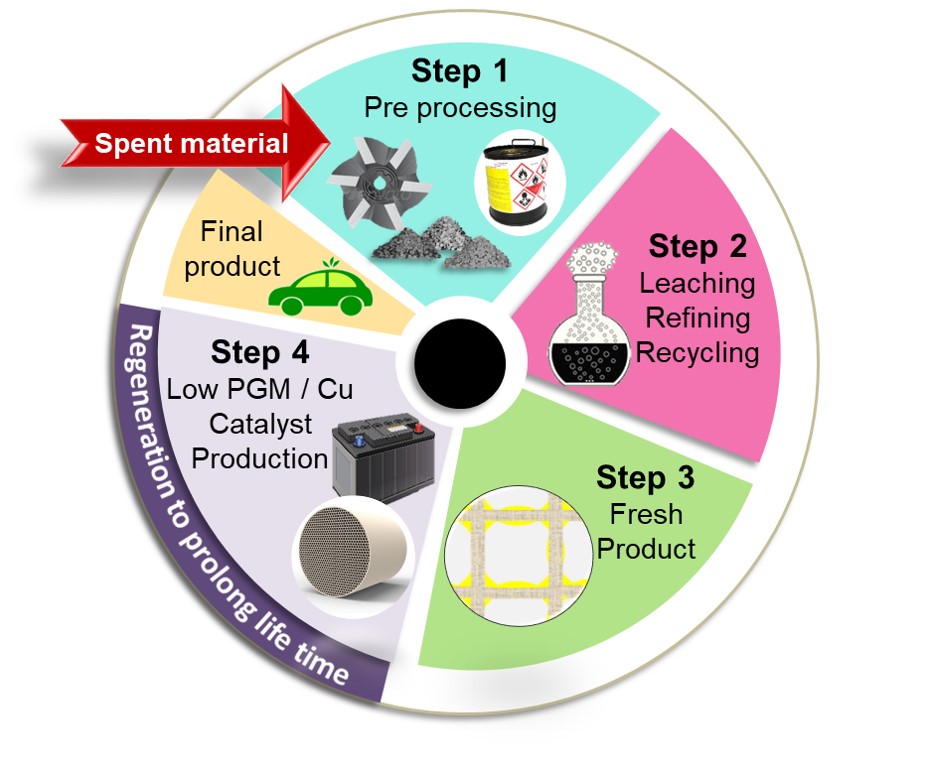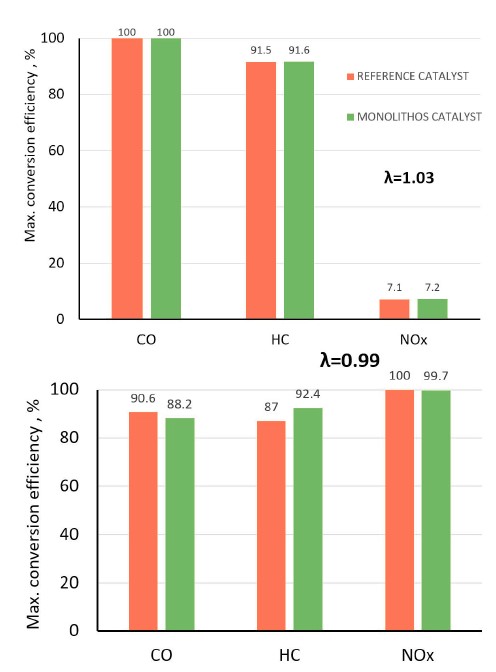During PLATIRUS project, MONOLITHOS has developed an integrated sustainable circular economy model that aims to make Europe independent from the Platinum Group Metals (PGMs) imports in the automotive sector. A long term testing period in a real environment has confirmed the strong potential for implementation of the model in vehicles and upscaling production.
Nowadays, Europe depends on importing PGMs as they are being primary mined in Africa and Russia. For that reason, they have been categorized as a critical raw material (CRM). In addition, both PGMs sources and products have high global demand and are traded without serious trade restrictions worldwide. It is expected that PGM demand is going to further increase in the upcoming years.
The automotive catalytic converters (ACCs) have the highest PGMs’ tonnage use, therefore their recycling is of outmost importance. A novel circular economy model has been proposed (Figure 1) aiming to manufacture ACCs from 100% recycled PGMs, which will be partially substituted by copper (60% PGM substitution).

Concerning the top down section of this loop, spent or spent catalytic converters (SCC) are collected, sorted, dismantled and prepared for recycling (as described in Step 2). Thereafter, PGMs are recovered using a simple one step hydrometallurgical method (Step 3) resulting in 100%, 92% and 60% recovery yields for respectively Pt, Pd and Rh.
The bottom-up section of the loop refers to the re-use of the as-prepared pregnant PGM leachate (nitrates or chloride precursors), as a secondary feed for upscale ACC fabrication. The copper-based trimetallic PGM catalyst impregnated on oxygen storage ceramic carrier (CeZrO2 crosslinked with γ-alumina), namely PROMETHEUS catalyst, is patented by MONOLITHOS Ltd (TRL5) and validated under both rich (λ=0.99) and lean (λ=1.03) conditions revealing similar catalytic activity with a commercial TWC catalyst (Figure 2).

Long term stability testing onboard a real passenger vehicle tailpipe has shown minor deactivation of PROMETHEUS catalyst, promoting its strong potential for upscaling production. This novel catalyst will be retrofitted in vehicles, contributing in PGM sustainability and providing the potential for practical applications.
You can find the full paper of the text here: https://ieeexplore.ieee.org/document/8493824
